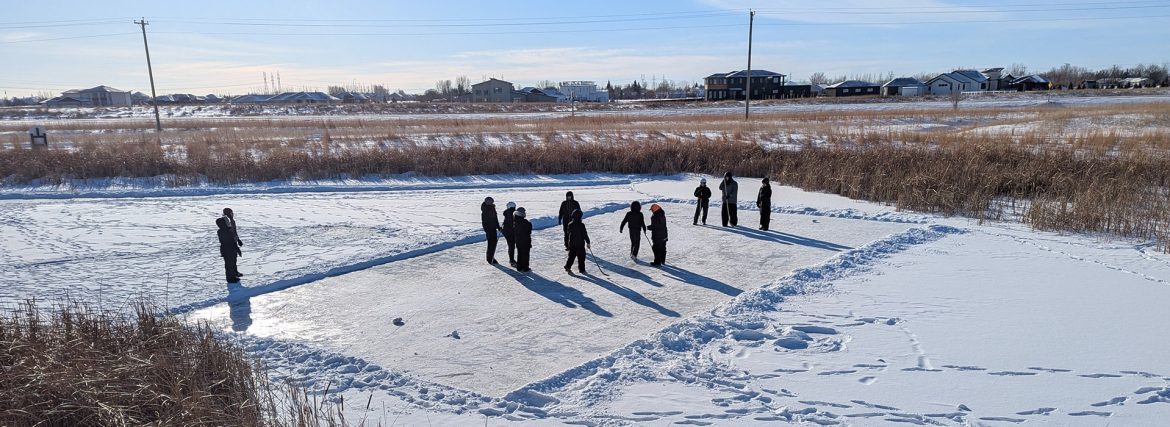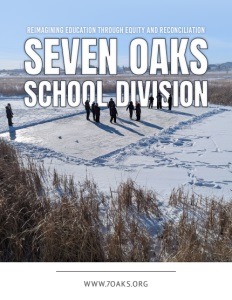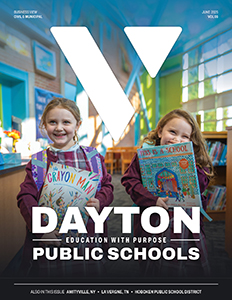Reimagining Education Through Equity and Reconciliation
A public school division removing barriers, honoring land-based learning, and preparing students for tomorrow’s economy
The Seven Oaks School Division in Winnipeg, Manitoba, stands out for its unwavering commitment to equity, Indigenous education, and innovative learning. Driven by a philosophy that removes financial barriers, the division has eliminated school fees for essentials like instruments and field trips.
Beyond accessibility, Seven Oaks prioritizes land-based learning at the Aki Centre and systemic reconciliation, embedding Indigenous knowledge across its schools to foster holistic growth.
Foundational Values: Equity and Inclusion
At Seven Oaks School Division, equity isn’t just a principle, it’s practice. “We’re very much driven through a lens of equity,” explains Superintendent Tony Kreml, “that’s to ensure that every student receives a quality education that allows them to reach their fullest potential.”
The district has eliminated school fees for lunches, band instruments, and field trips, ensuring all students have equal access to opportunities. “We pride ourselves in being a school division that has no school fees,” adds Kreml. This policy had a profound impact on one grade 12 student, who discovered his musical talent through the no-fee instrument program.
“He didn’t think that given his circumstances, that he would be able to afford the rental of an instrument,” Kreml shares. Today, that student is pursuing music at Brandon University, a testament to how removing financial barriers unlocks potential. “We know that it makes a difference for kids when they’re coming to our schools, and they’re able to access public education without any fees attached,” Kreml notes. The division’s commitment extends beyond fees. By capping school supply costs, Seven Oaks actively dismantles socio economic hurdles.
Governance plays a key role, with trustees embedding equity into policy decisions. This holistic approach ensures every student, regardless of background, can thrive. “When we say that we’re driven by equity, and looking to establish an inclusive environment,” Kreml adds, “it’s those things that provide that environment in our school division, and we’re proud of that.”
Early Childhood and Literacy Initiatives
Seven Oaks School Division builds educational foundations early through innovative preschool programs that connect families to schools before kindergarten begins. “We’re intentional on having childcare available at our school sites,” explains Kreml.
The division’s groundbreaking First Teacher program takes literacy support directly into homes, addressing socioeconomic barriers head-on. “It’s an intentional program to introduce students and families to literacy right within their homes and in our communities before they reach our schools,” Kreml says. Recognizing that some parents work multiple jobs, the initiative ensures early learning isn’t compromised by family circumstances.
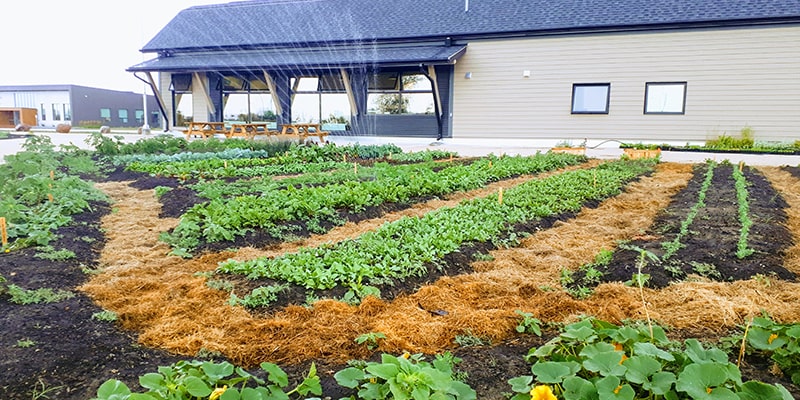
These programs create seamless transitions to formal schooling through regular reading sessions and school visits. “We have preschool programming, where children and families come to schools throughout the course of the year and they’ll have reading sessions that take place,” Kreml notes, describing how the program familiarizes families with their neighborhood schools. By integrating education into home life and community spaces, Seven Oaks gives young learners, and their parents, the tools to approach kindergarten with confidence.
The holistic approach reflects the division’s understanding that education begins long before the classroom. “We recognize that in some of our communities, there are significant socioeconomic barriers,” Kreml explains, “this is an opportunity for us to assist in that early literacy.”
Land-Based Learning: The Aki Centre
At the heart of Seven Oaks School Division’s commitment to Indigenous education lies the Blue Thunderbird Land-Based Teachings Learning Centre (Aki Centre), where Operations Coordinator Alexis Nazeravich explains, “the classroom is the land.” This 50-acre site represents far more than an outdoor education space, it’s an active restoration of Indigenous knowledge disrupted by colonization. “When you’re speaking about curriculum and pedagogy, this place was born from a collective, a collaborative group,” Nazeravich says, “it was born from the idea that what we’re here to do isn’t just environmental education, but it’s land-based education.”
The centre has transformed degraded farmland into thriving ecosystems, including 37 acres of restored grassland and a one-acre wetland. Cultural landmarks like a medicine wheel garden with benches representing the seven sacred teachings and a sweat lodge create spaces for traditional practices. “It’s rooted in Indigenous knowledge, Indigenous teachings, Indigenous ways of life,” Nazeravich emphasizes.
Students visit multiple times yearly for full-day programs that weave land-based learning across subjects. “The intention is that they [the teachers] start to embed that philosophy in their classrooms,” Nazeravich explains, noting how experiences at Aki inspire teachers to continue land-based education back at school and beyond. “It’s supposed to sort of ignite their confidence and their understanding of the philosophy and the practices.”
Assistant Superintendent of Indigenous Excellence in Education, Sherri Denysuik, adds “we had a pipe ceremony before they even broke ground,” sharing the center’s profound origins. This ceremonial foundation preceded the elders’ gifting of the centre’s Ojibwe name. “From there, these are the seeds that grew. The Aki Centre really is a symbol of land back in that there was the reclamation of the land, the restoration of the land, the resilience of the land, and now we’re on the face of the resurgence of the land,” says Denysuik, explaining the ongoing transformation as both physical and cultural.
From degraded fields to a living classroom, the Aki Centre embodies Seven Oaks’ reconciliation journey, one that honors truth. “Land-based education is not new, it’s old, it existed before colonial systems removed that,” Nazeravich notes, “so really, it is a return and a restoration of culture and ways of learning that we’re always here, and that we’re interrupted by colonization.”
Preparing Students for the Future
Seven Oaks School Division’s innovative Career Ready program gives grade 12 students a head starts in skilled trades through an intensive, hands-on approach. “We have HVAC, aviation maintenance, plumbing and pipe fitting, and electrical,” explains Kreml. The program combines classroom theory with real-world experience, students spend the first months learning fundamentals before transitioning to internships with local firms.
What sets Seven Oaks apart is how students earn dual credits. “As they’re completing that with us here in Seven Oaks, they’re also acquiring credits at the college level as well,” Kreml notes, “it’s essentially getting them a head start.” One remarkable success story saw an automotive student leverage this experience to enter engineering at the University of Manitoba. The student credited the program’s practical focus with preparing him for university-level theory.
Unlike traditional vocational tracks that begin in grade 9, Seven Oaks’ concentrated grade 12 model preserves student choice. “Students still have that full, robust high school experience,” Kreml emphasizes, allowing them to explore arts and electives before specializing. This flexibility ensures career preparation doesn’t come at the expense of well-rounded education.
Infrastructure and Technology
Seven Oaks School Division is transforming its physical and digital landscapes to meet growing community needs. The division recently upgraded West Kildonan Collegiate with new science labs, a dance studio, and fitness facilities to serve expanding neighborhoods. “The surrounding area is seeing exponential residential growth,” notes Kreml, with three new K-8 schools planned through 2028 to accommodate Aurora, Meadowlands, and Highland Point developments.
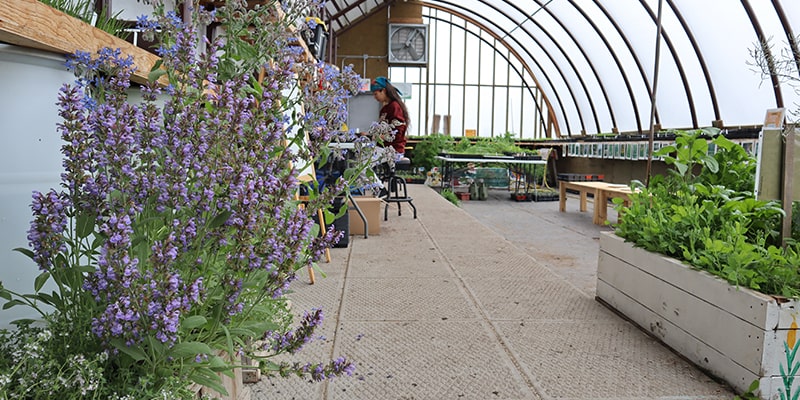
Technology integration focuses on enhancing, not replacing, traditional learning. “We’ve moved away from the dedicated computer lab to having technology right within the classroom to support learning,” Kreml explains, emphasizing devices as tools to deepen understanding. “It’s not going to be a substitute for the teacher and student interaction, but rather something that supplements their learning and allows them to go deeper on some topics.”
The division prioritizes cybersecurity to protect sensitive data while proactively addressing emerging challenges like AI. “What’s important for us is the privacy of both our students and all of our employees and that we protect that to the best of our ability,” Kreml adds on cybersecurity.
“We’re at the beginning part of this journey,” Kreml says of AI integration, with staff workshops exploring ethical applications. “This will continue to be a priority for us within the next couple of years as we learn to better understand it and how it can support our students and in their learning.”
The approach stresses critical thinking. “AI without intentionality in terms of how we bring that into our classrooms can very much lend itself to surface-level learning,” says Kreml, “we want to look beyond that.” This balanced framework ensures technology serves pedagogy while preparing students for a digital world.
Truth and Reconciliation
Seven Oaks School Division’ dedication to Indigenous education permeates every level of its operations. “What is good for Indigenous learners is good for all learners,” Denysuik states, echoing the late Senator Murray Sinclair’s powerful assertion that “education got us into this mess and education will get us out of it.”
The division’s Graduation Powwow, now in its 16th year, stands as a vibrant example and testament to this commitment, which grows annually and attracts thousands of participants. “We have K-12 participation with students who are in powwow clubs and of course the graduates who are being honored,” Denysuik explains, describing how students dance, volunteer and participate at this celebration of Indigenous culture which is a true one-of-a-kind community event for all nations.
Looking ahead, Seven Oaks will launch an Indigenous MET School in 2026, featuring project-based learning steeped in traditional knowledge. “One that will honor language, honor culture, honor traditions of Indigenous peoples,” says Kreml.
Complementing these efforts is Manitoba’s universal nutrition program, ensuring no student learns on an empty stomach. “Our partnership with the Minister of Education and their vision for public education is a key support,” Kreml notes. “The intent is that no child goes hungry within our schools,” he adds, a partnership that embodies the division’s holistic approach to equity and reconciliation.
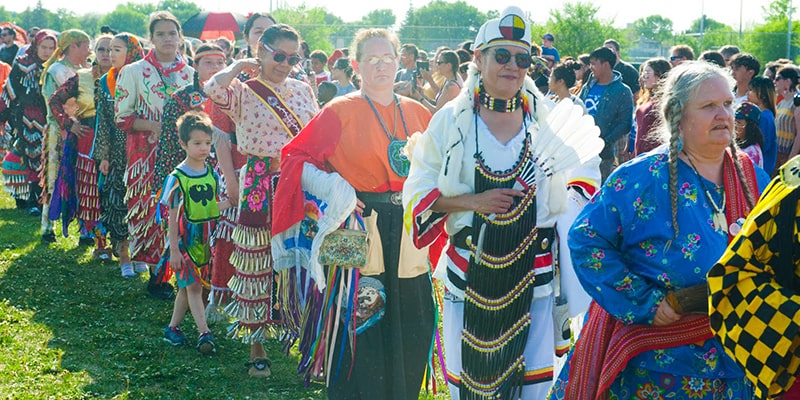
Leadership Perspectives and Future Vision
At the heart of Seven Oaks School Division’s success lies its student-centered philosophy. Kreml offers simple yet powerful advice to learners, “keep hold of their dreams…there are people here that are going to walk that path with them while they’re in our schools.” This ethos underscores the division’s commitment to pairing student ambition with dedicated support.
Looking forward, the division plans to deepen its groundbreaking work. The Aki Centre will expand its land-based programming, while the 2026 launch of the Indigenous MET School represents a major step in scaling reconciliation initiatives. “We’re really a beacon in the work we’re doing as a school division when it comes to truth and reconciliation,” affirms Denysuik. These future-focused efforts ensure Seven Oaks continues leading in equitable, inclusive, culturally grounded education drawing on Indigenous pedagogies which serves all learners.
Seven Oaks’ Blueprint for the Next Generation
Seven Oaks School Division stands as a national model for how public education can champion equity, innovation and cultural stewardship in equal measure. From eliminating financial barriers to restoring Indigenous ways of knowing at the Aki Centre, the division proves that systemic change is possible when communities come together.
“Aki means land,” explains Nazeravich, a simple yet profound reminder that the most powerful classrooms extend beyond walls. Whether through career-ready graduates or kindergarteners experiencing their first powwow, Seven Oaks demonstrates daily how education can both honor tradition and build brighter futures. Their work offers a blueprint for reconciliation through action, one student at a time.
AT A GLANCE
Who: Seven Oaks School Division
What: A forward-thinking school district eliminating barriers through no-fee policies, Indigenous land-based learning, and trades preparation
Where: Winnipeg, Manitoba, Canada
Website: www.7oaks.org
PREFERRED VENDORS/PARTNERS

Children’s Rehabilitation Foundation is a Manitoba charity dedicated to helping children with disabilities live as independently as possible. We raise funds to improve the lives of individuals who access services through the Rehabilitation Centre for Children by investing in life-changing programs, services, research and equipment for youth and their families.
Children’s Rehabilitation Foundation: www.crf.mb.ca
